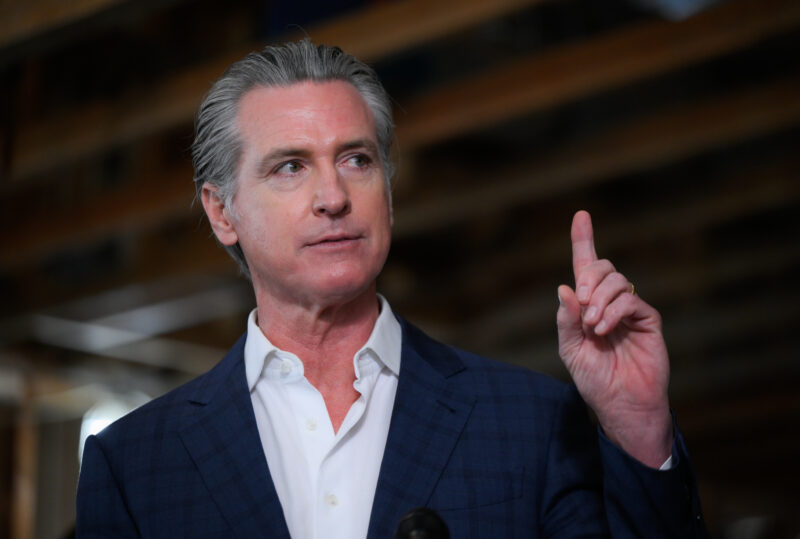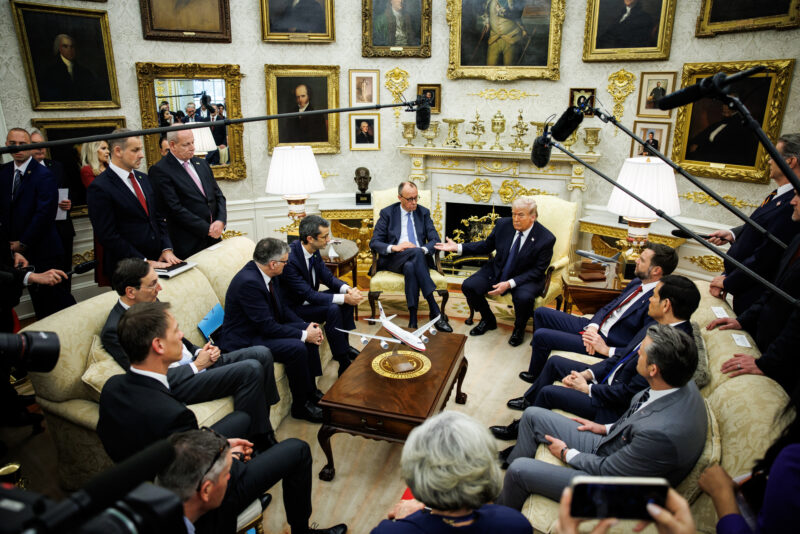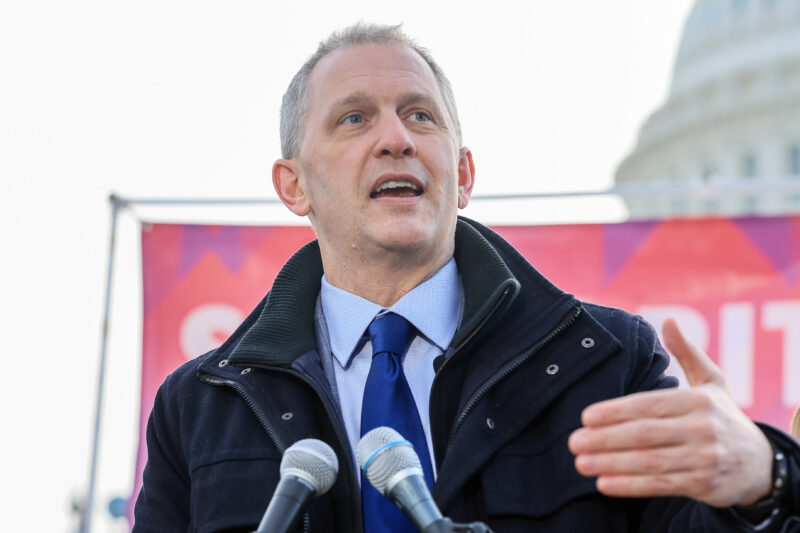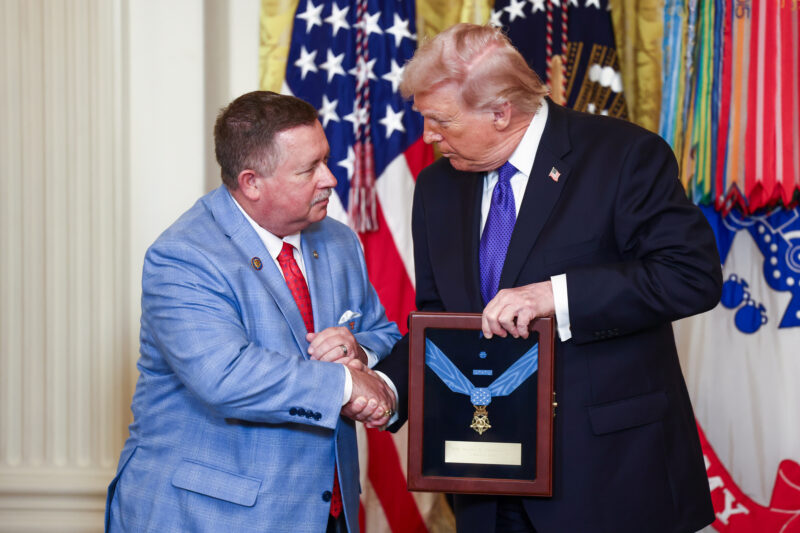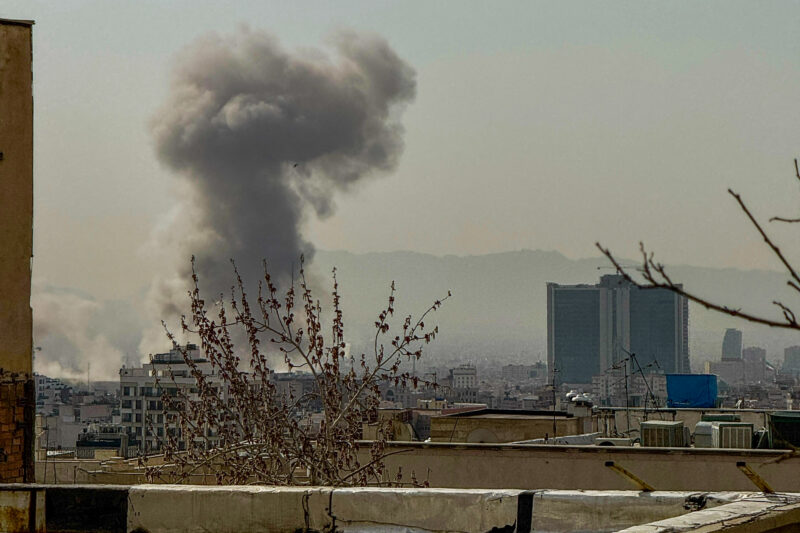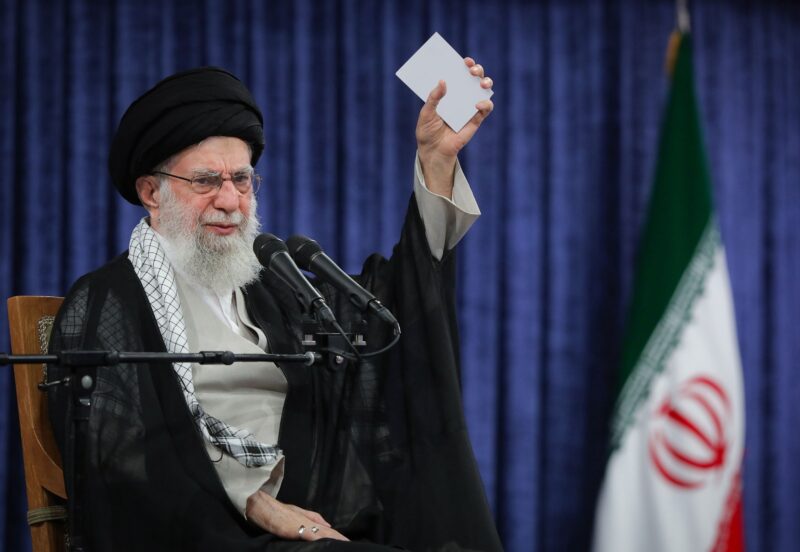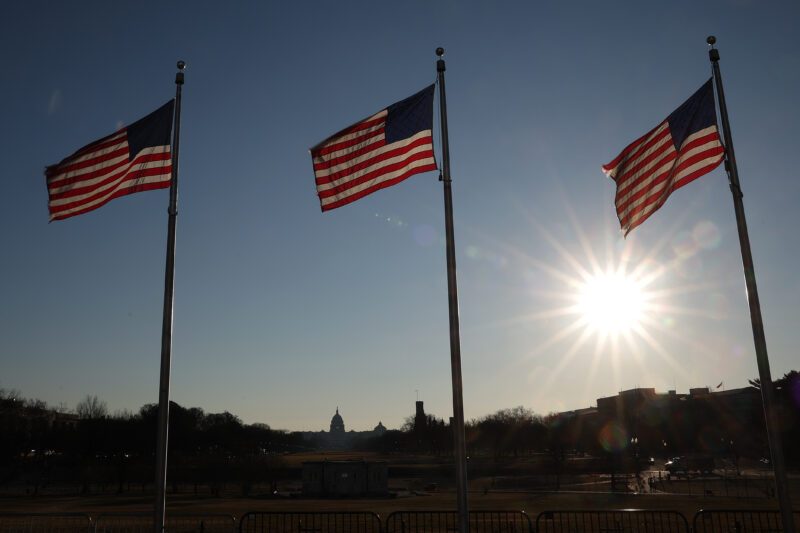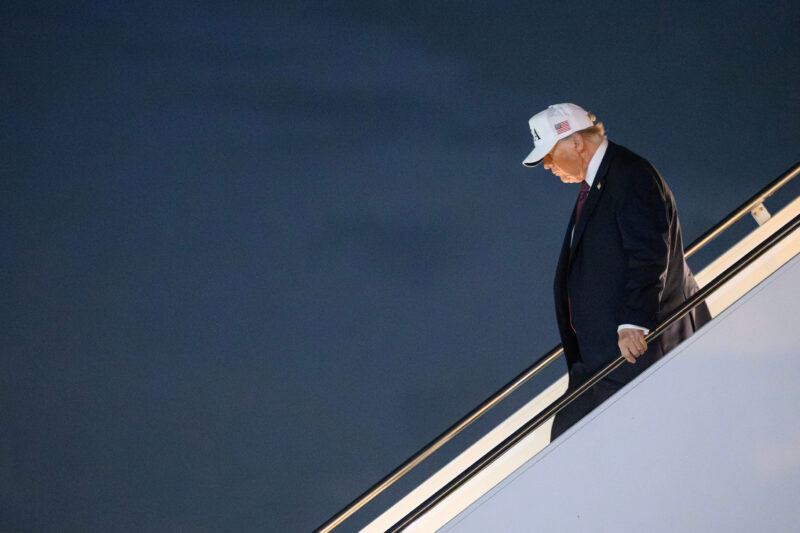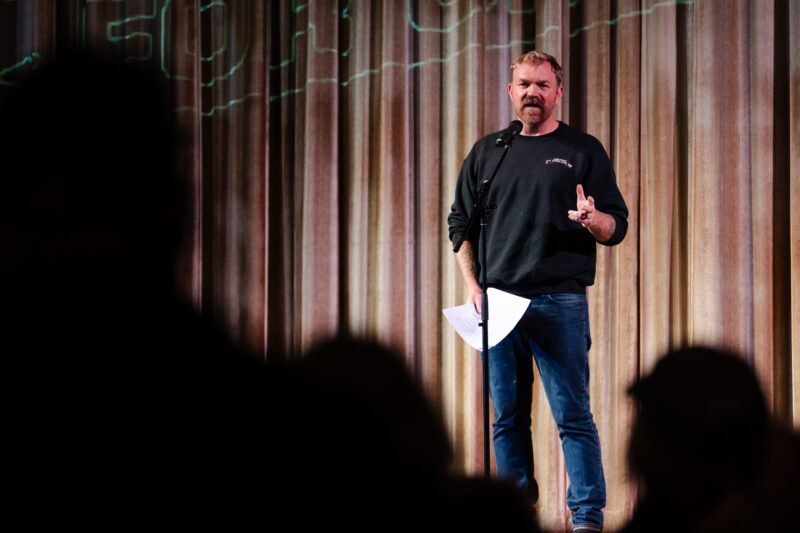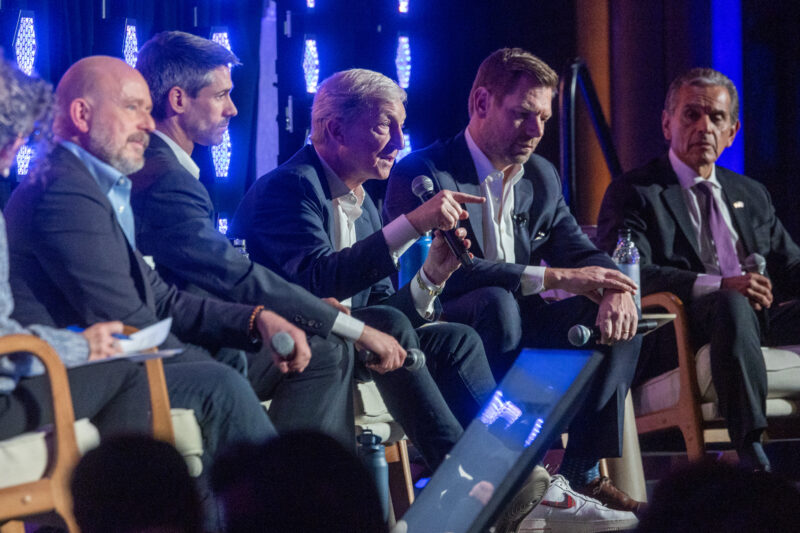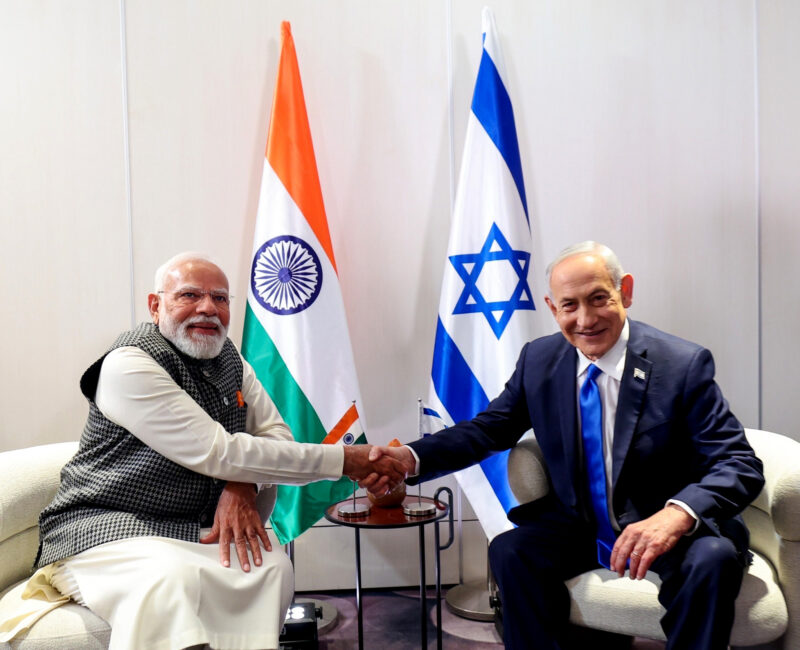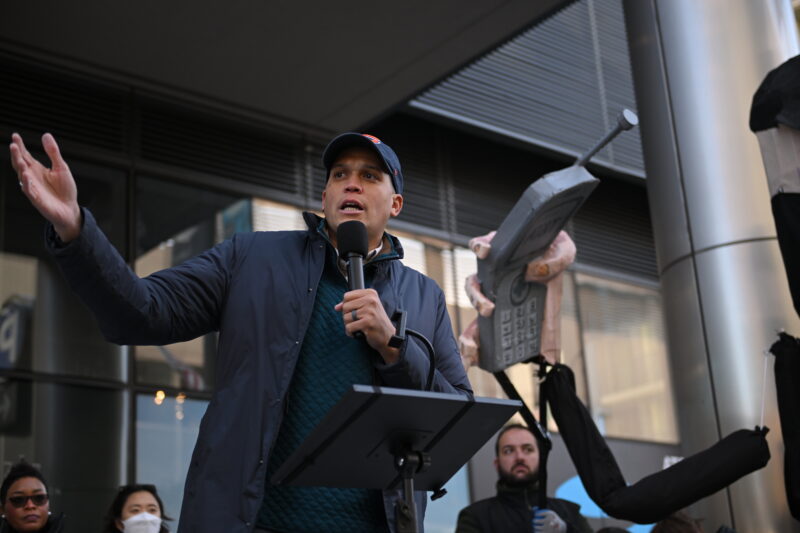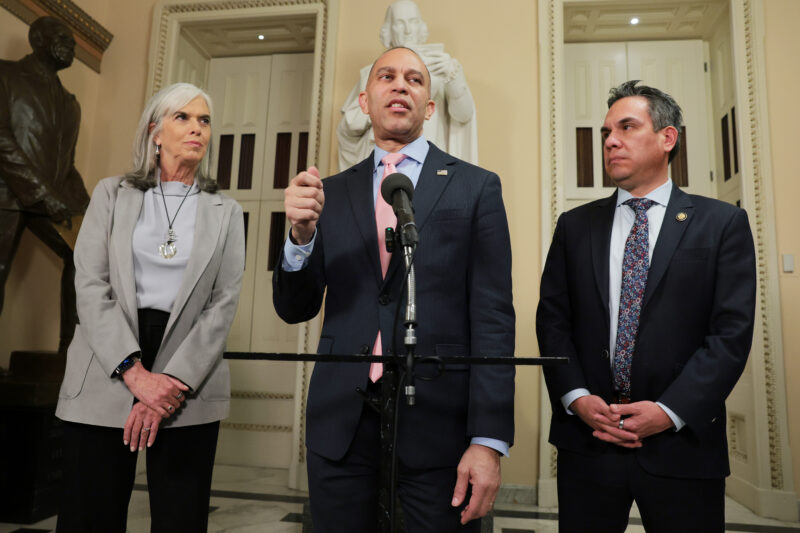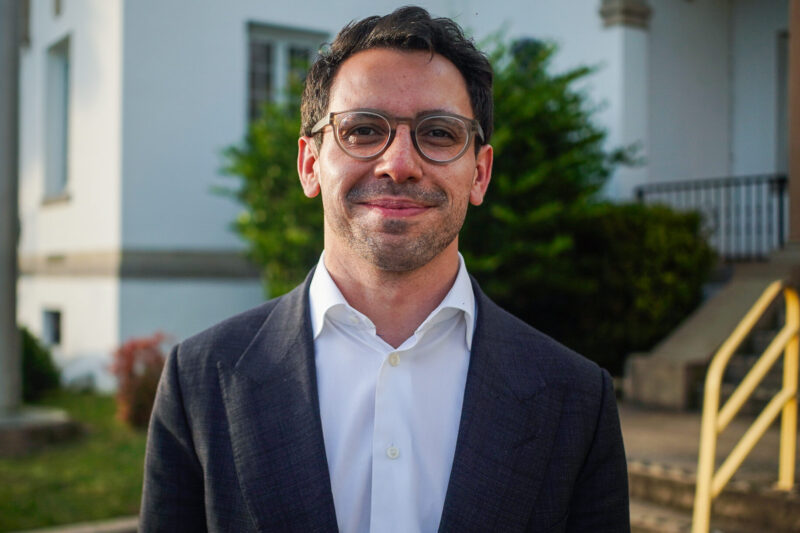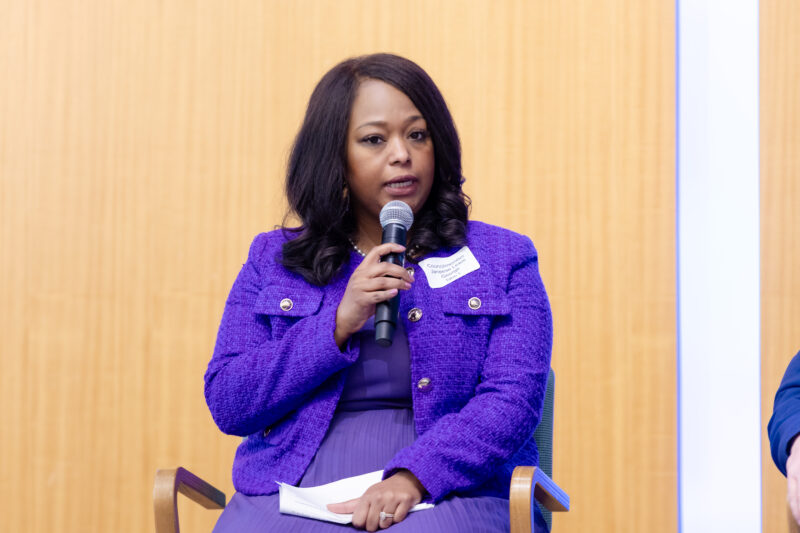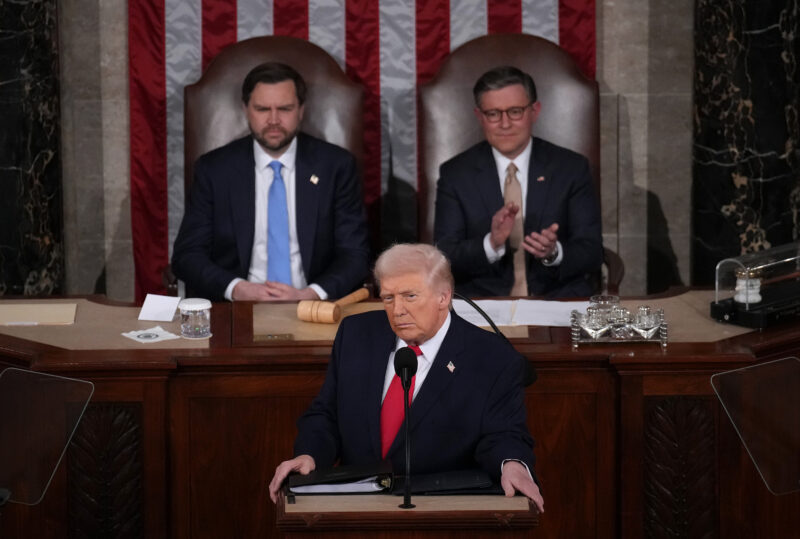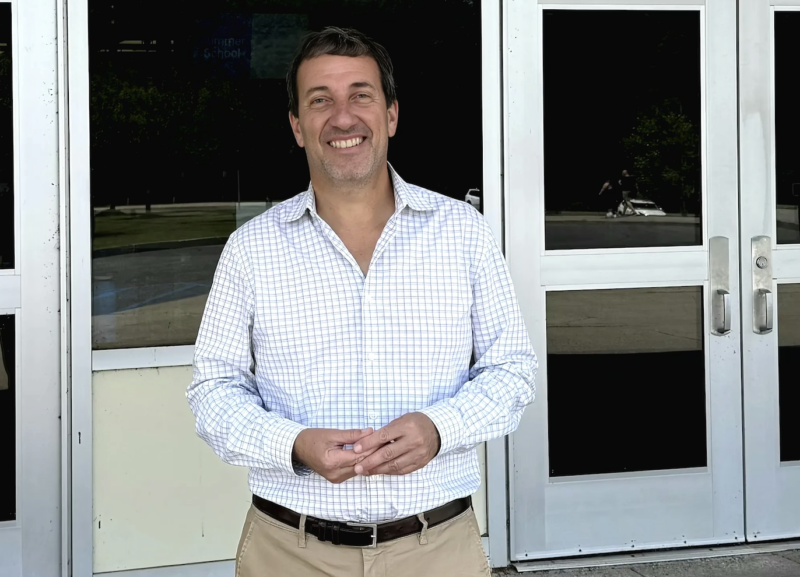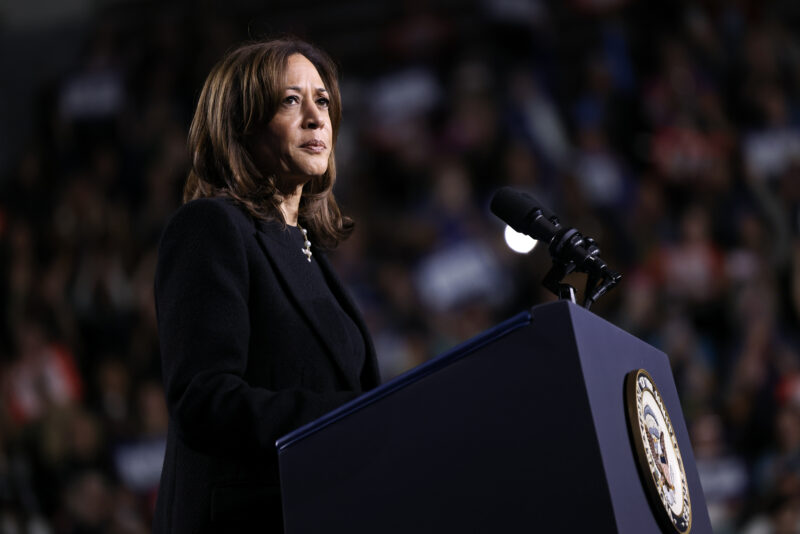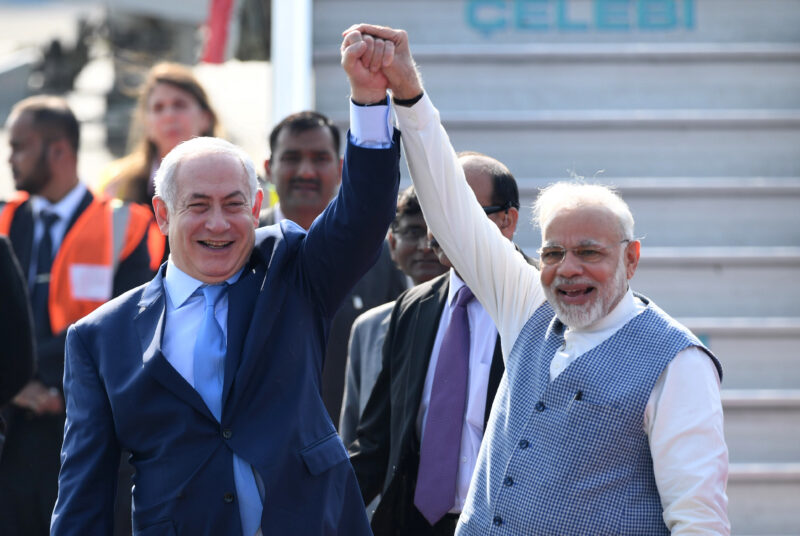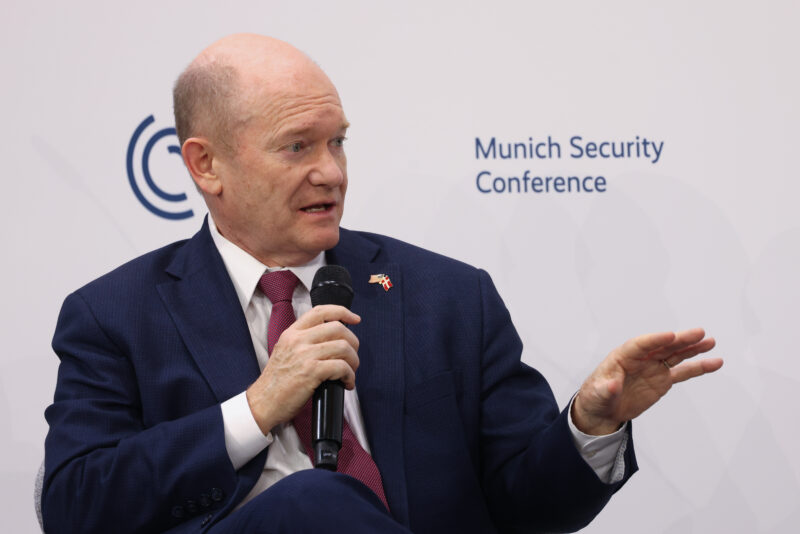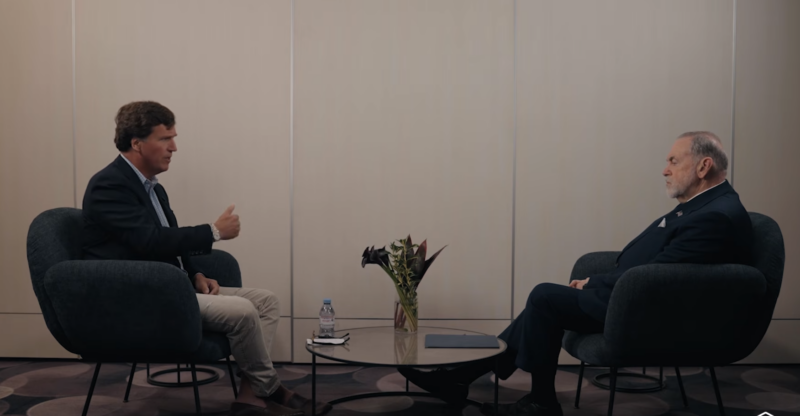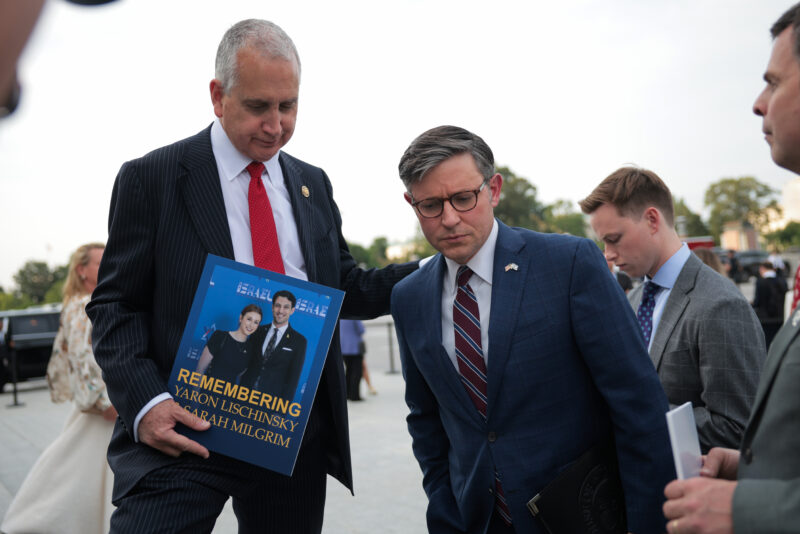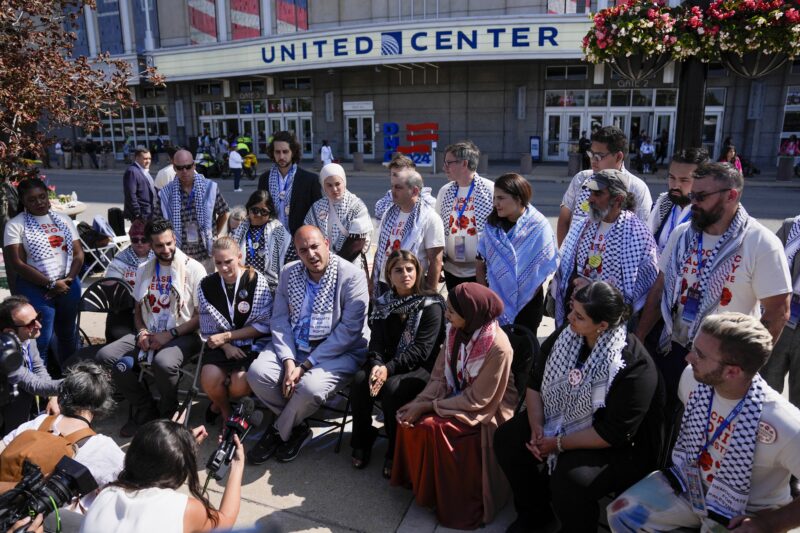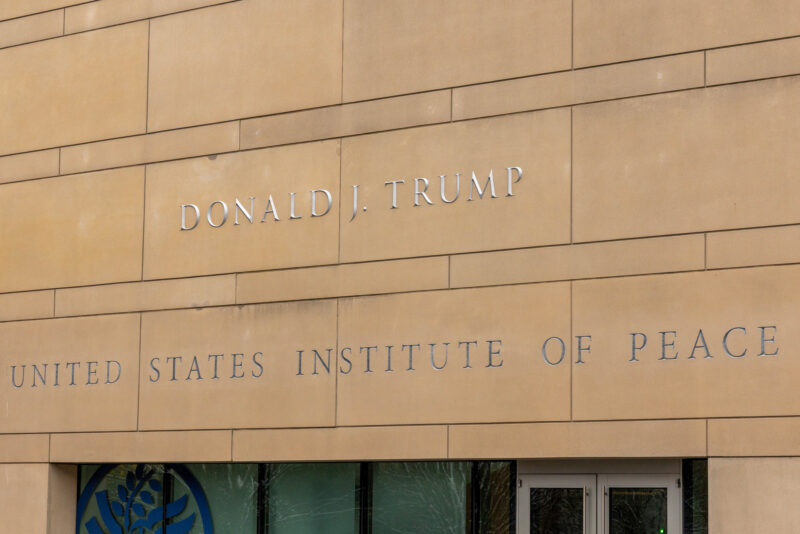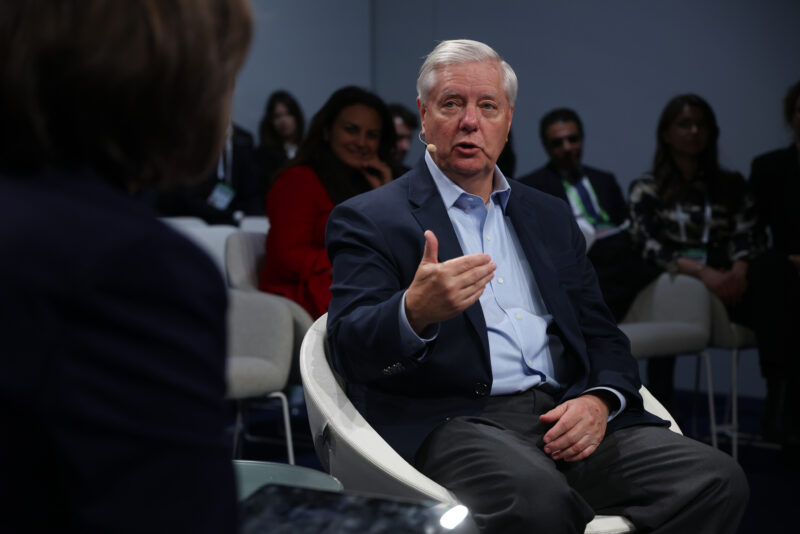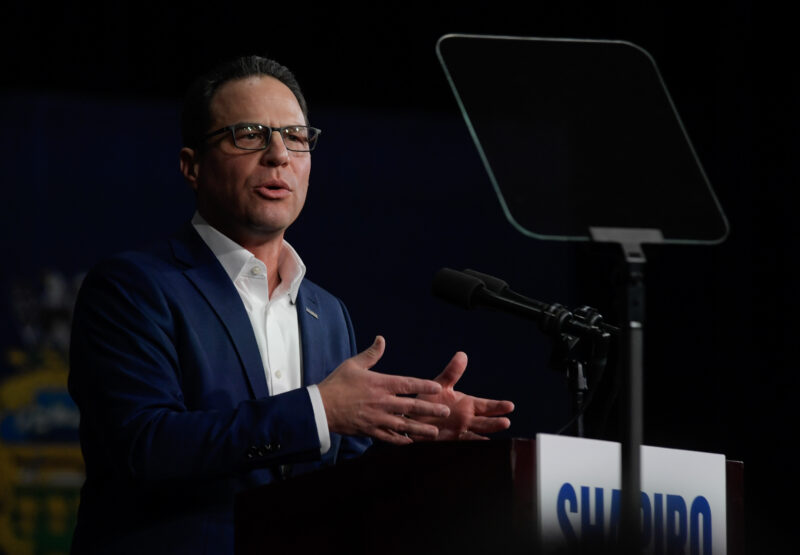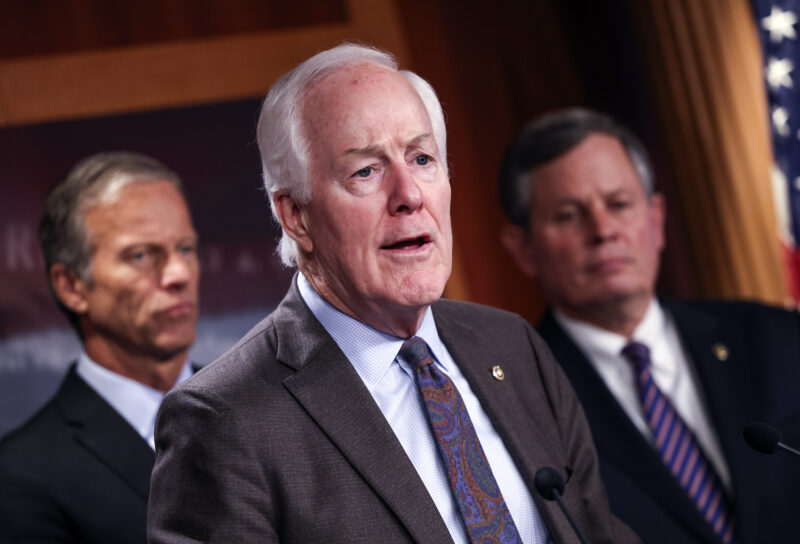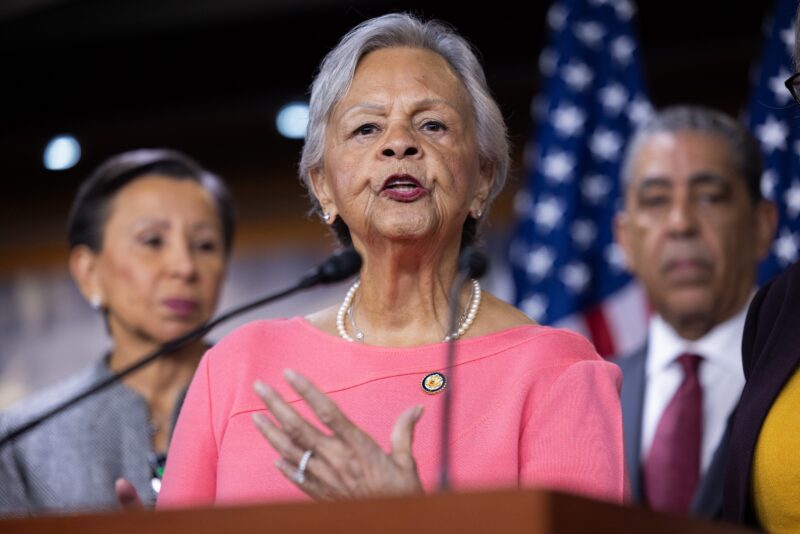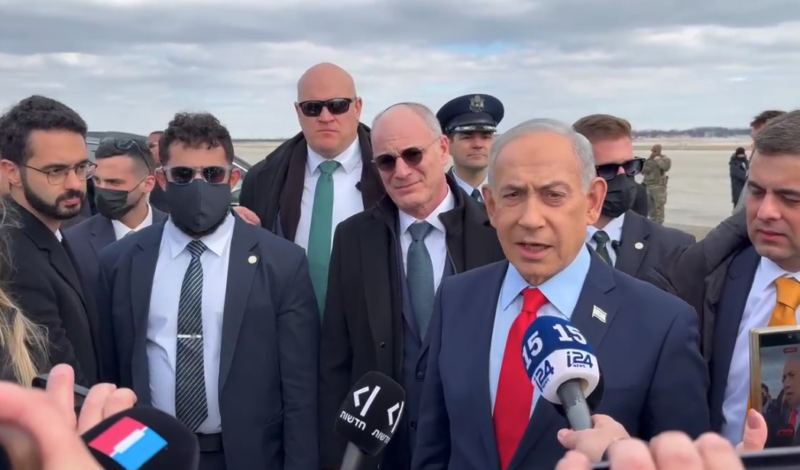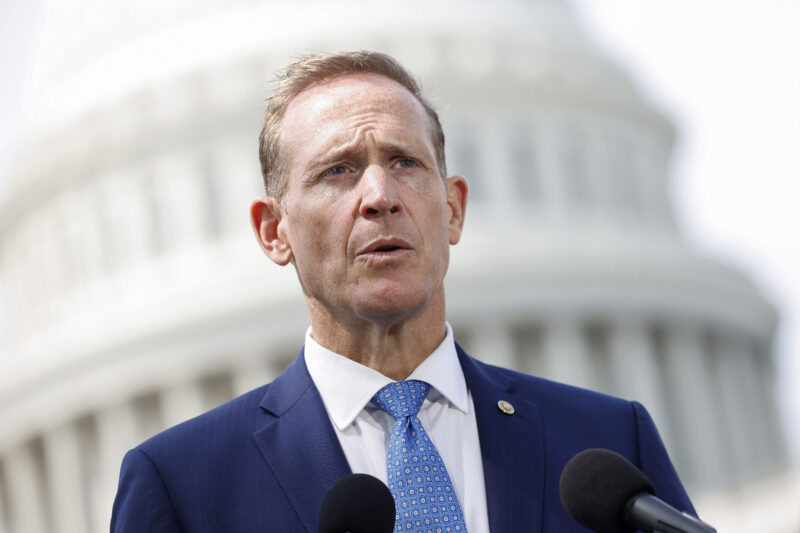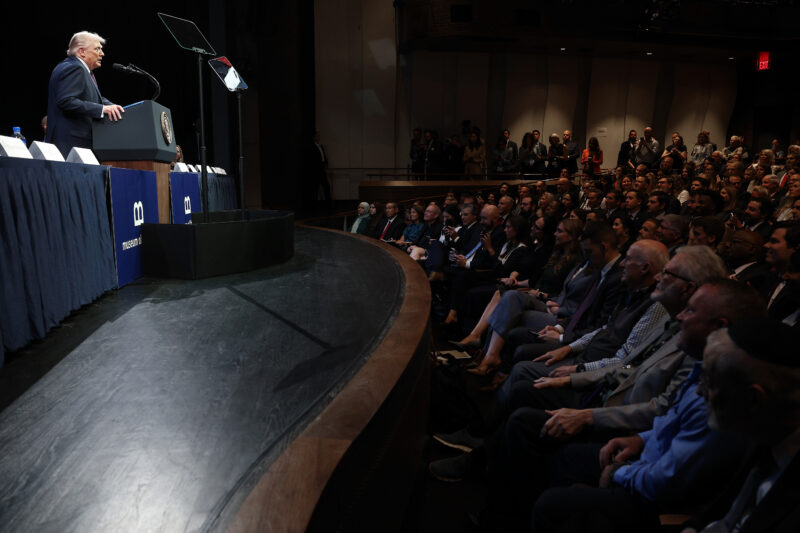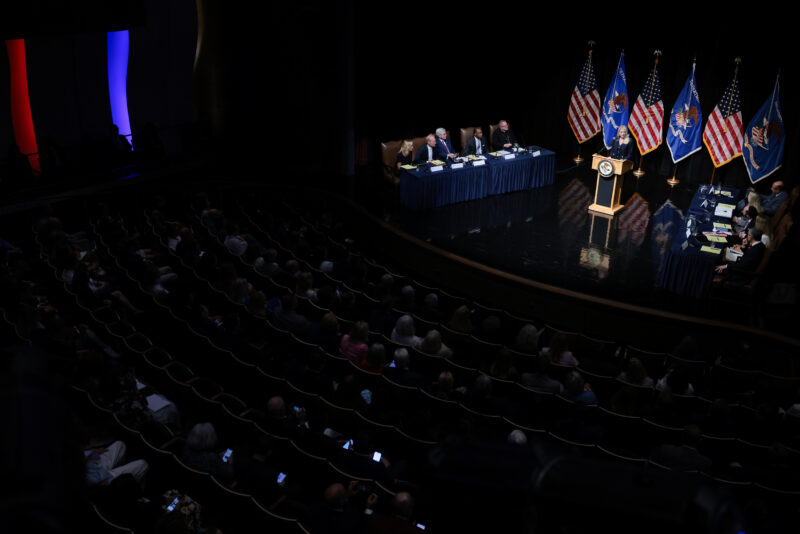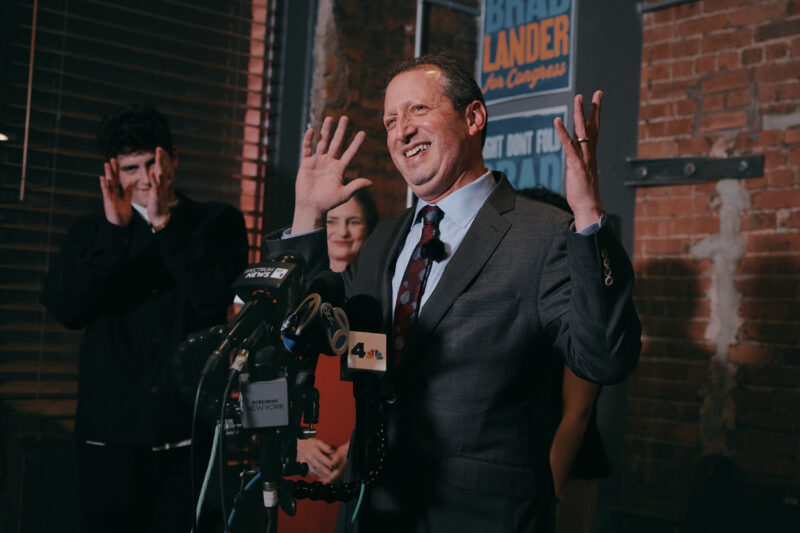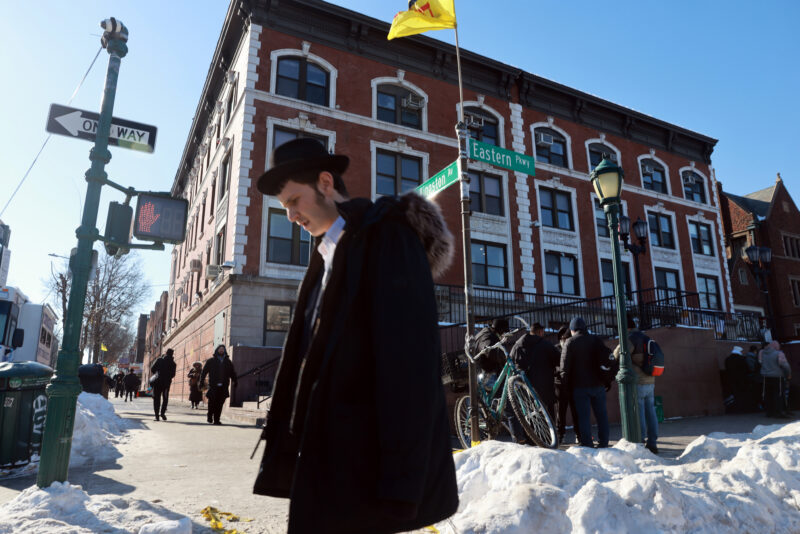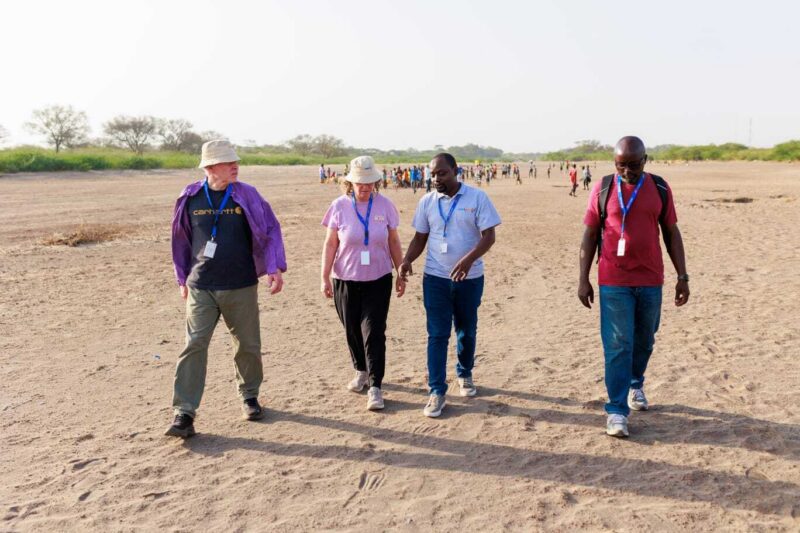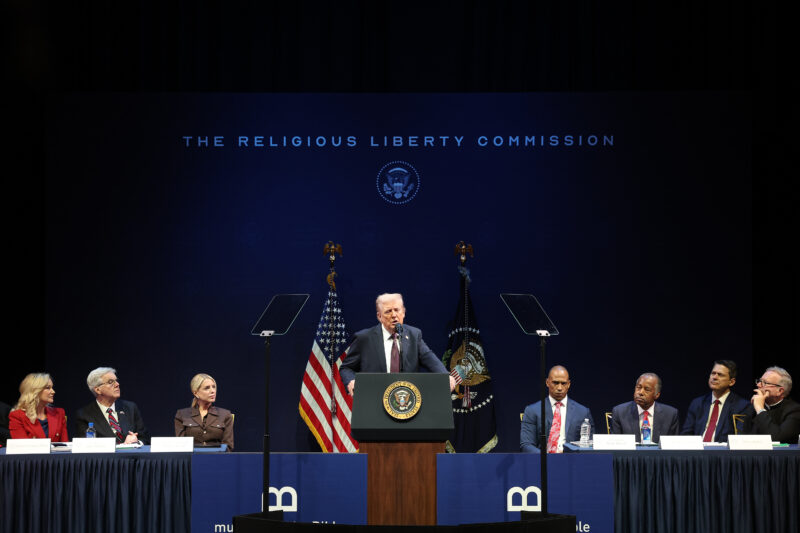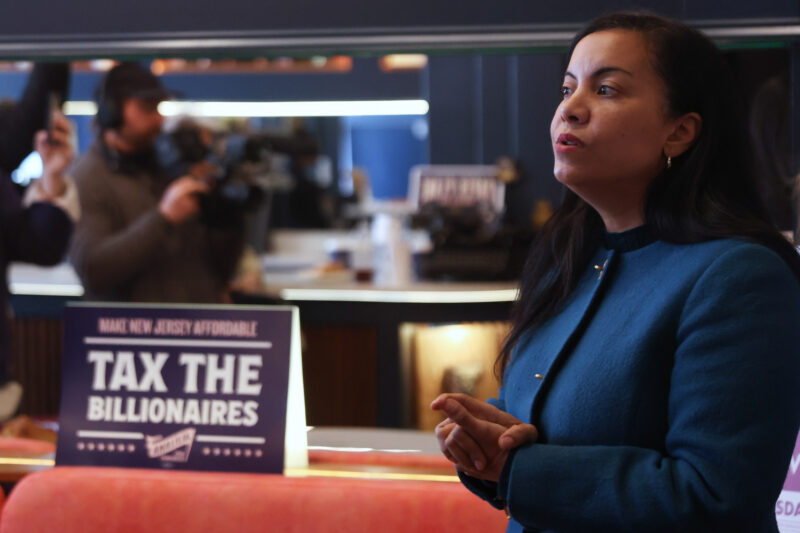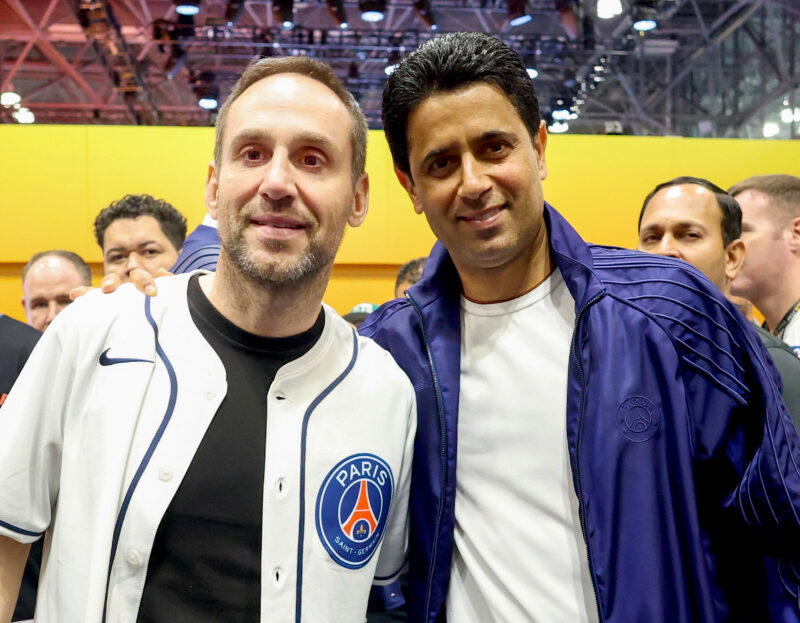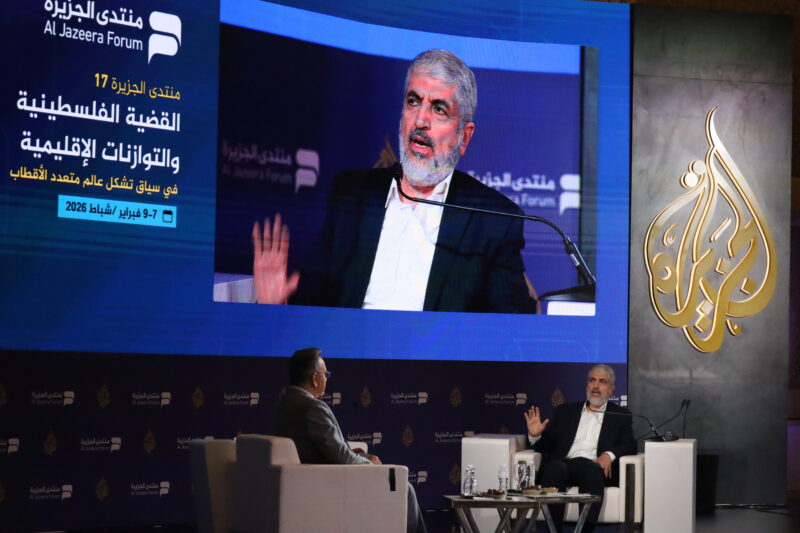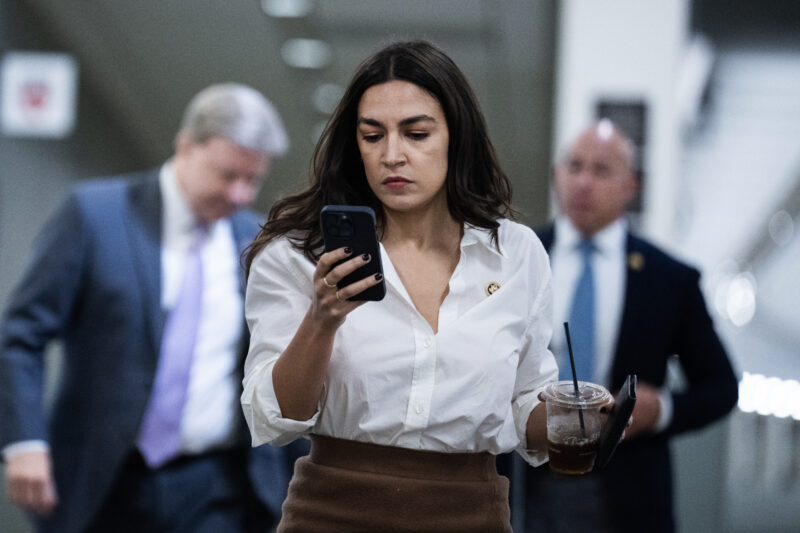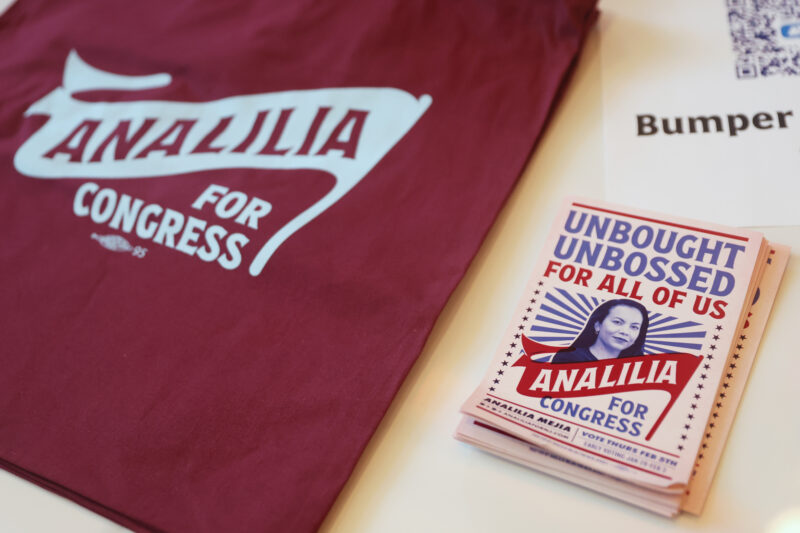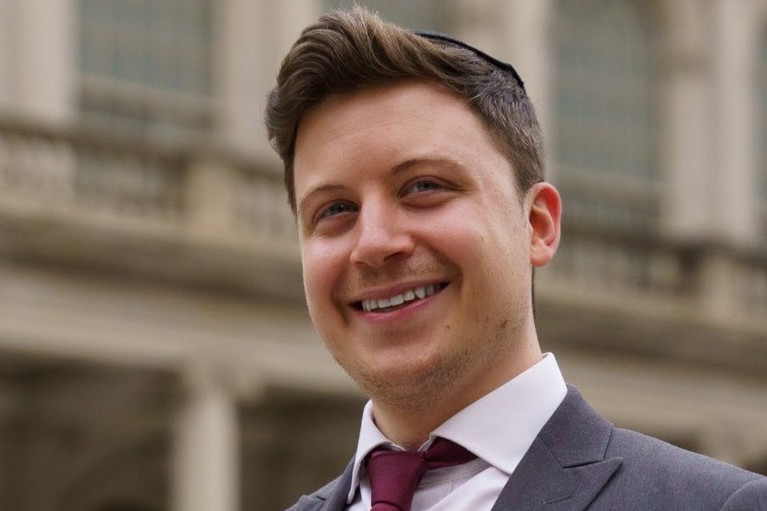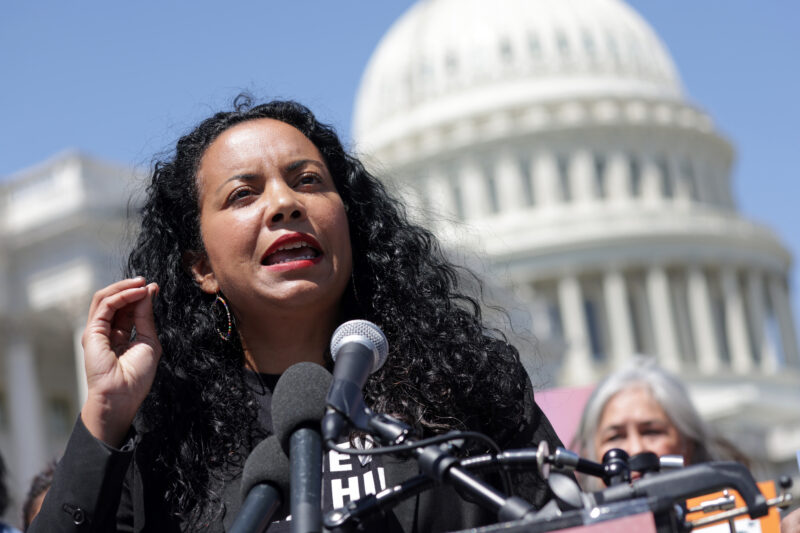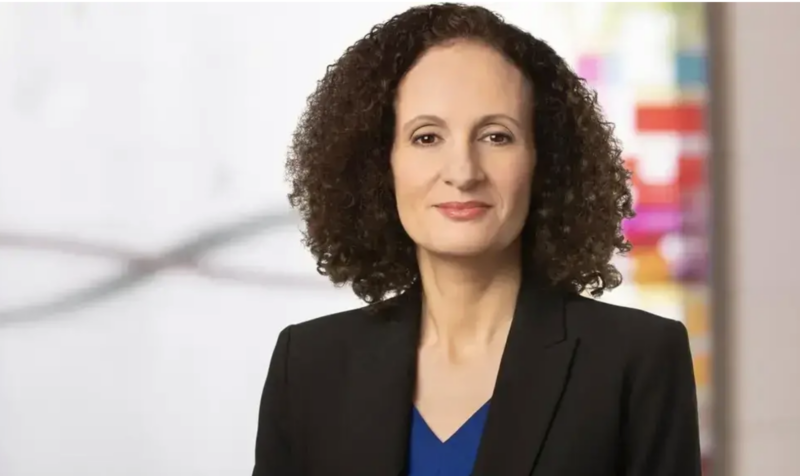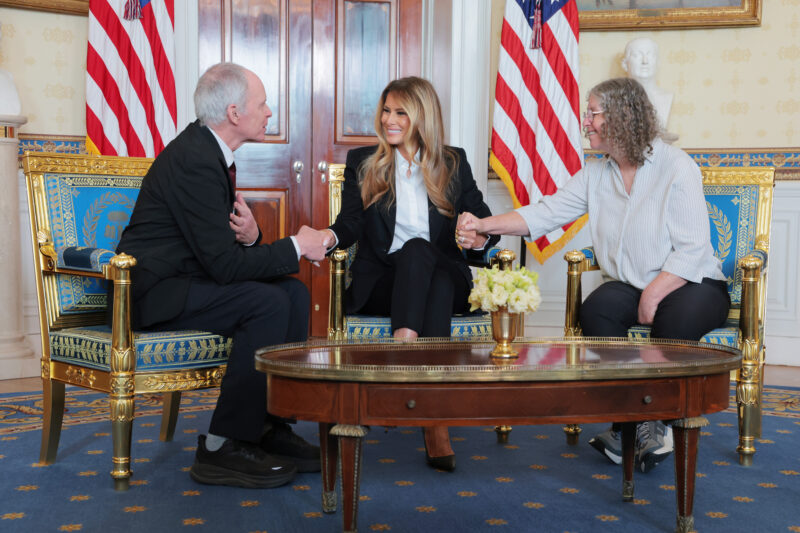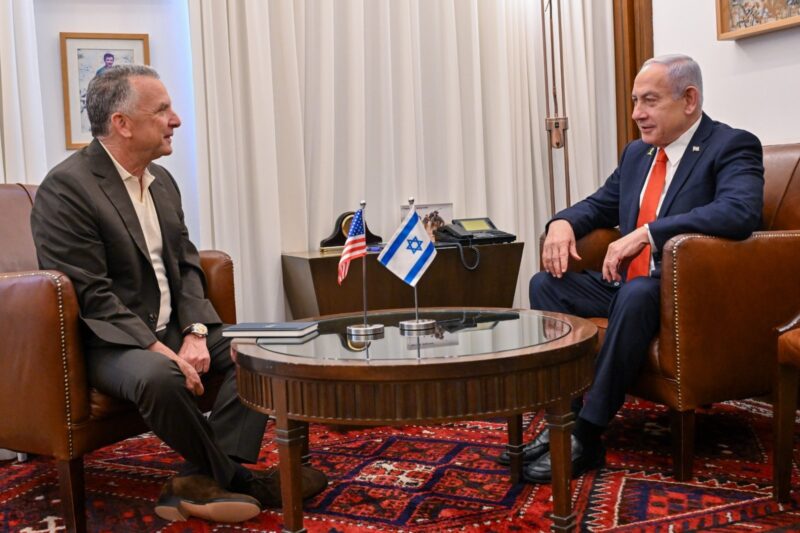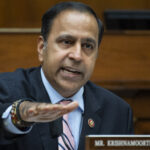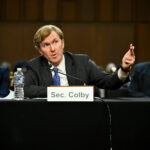Most of DMFI’s fundraising haul this year comes from one wealthy Democratic donor in Indiana
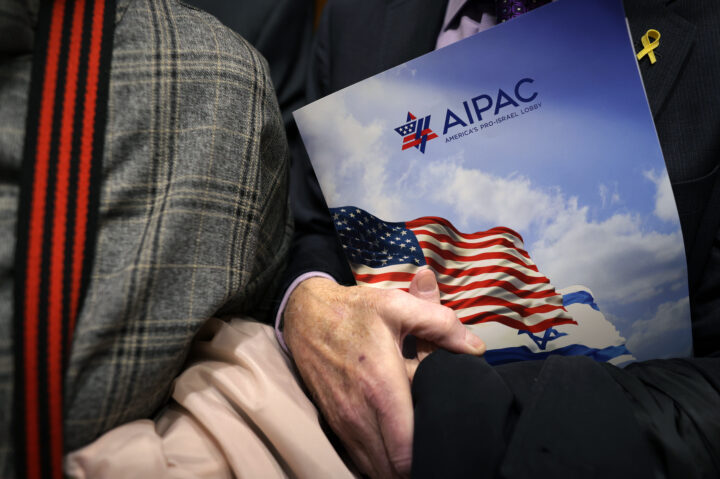
Alex Wong/Getty Images
A visitor holds an AIPAC folder in an elevator in Rayburn House Office Building on March 12, 2024 on Capitol Hill in Washington, DC.
The latest round of fundraising reports filed by leading pro-Israel advocacy groups suggests that they are in strong financial shape as the midterms come into view, even as some of the top pro-Israel candidates have underperformed with their fundraising in key races.
United Democracy Project, a super PAC affiliated with the pro-Israel lobbying group AIPAC, raised $13.5 million in the first half of 2025, according to its mid-year fundraising report filed late last week, with nearly $39 million on hand at the end of June.
Those figures were far higher than the $8.8 million in contributions the group had pulled in during the same six-month period in 2023, at the beginning of the last election cycle. The group, which ultimately raised much more in the months following Hamas’ Oct. 7, 2023, attacks, had $9 million on hand at the time, federal filings show.
Among the top donors to UDP this cycle are Blair Frank, a portfolio manager at Capital Group, who gave $1.5 million — marking the only seven-figure contribution. The Kraft Group, a holding company led by Robert Kraft, the owner of the New England Patriots, gave $500,000 — as did four other donors including Sanford Grossman, Michael Leffell, David Messer and Andrew Schwartzberg, according to the new filings.
Meanwhile, AIPAC’s bipartisan political action committee, which has yet to issue endorsements in a range of key House and Senate races, raised $2.6 million last month — and was sitting on nearly $14 million at the end of June, its latest monthly filing shows. By contrast, the group had raked in around $1.5 million in June 2023, with nearly $1.4 million on hand.
The fundraising indicates that pro-Israel donors are being driven to contribute amid a new shift in which a growing number of Democratic lawmakers, as well as some Republicans, have endorsed blocking aid to Israel over its handling of the humanitarian crisis in Gaza. That trend has coincided with the Democratic nomination of Zohran Mamdani, an avowed critic of Israel, in New York City’s mayoral race, opening up an ongoing debate over the party’s future direction.
Marshall Wittmann, an AIPAC spokesperson, said in a statement that “grassroots pro-Israel activists are deeply engaged in the political process given the critical importance of the U.S.-Israel relationship as the Jewish state battles aggression from Iran and its terrorist proxies.”
“As the 2026 midterm elections approach, that increased involvement will ensure that the voice of the pro-Israel community will be heard,” Wittmann told Jewish Insider on Monday.
On the Democratic, rather than bipartisan, side of the equation, DMIF PAC, Democratic Majority for Israel’s political arm, reported raising $2.1 million so far this year, with $2.6 million on hand heading into July.
While the group’s latest cash haul was buoyed largely by a single $2 million contribution from Deborah Simon, a pro-Israel donor in Indiana, its new filing indicates a healthier financial situation than its last mid-year report in 2023, when DMFI PAC pulled in just over $700,000 during the first six months of that year, with only a small amount more in reserve funds.
DMFI PAC, which worked alongside UDP to unseat two Squad-aligned Israel critics in House races last cycle, has not yet announced endorsements in next year’s primaries.
Despite relatively robust fundraising for the two groups, such donor enthusiasm has yet to translate to some key races in which pro-Israel candidates are lagging behind their opponents. Rep. Haley Stevens (D-MI), a longtime ally of AIPAC who is running for Senate, was recently outraised by state Sen. Mallory McMorrow and Abdul el-Sayed, an outspoken critic of Israel. And in an open-seat House primary in the Chicago suburbs, Laura Fine, a state senator who is touting her pro-Israel positions, fell well behind her two left-leaning rivals.
One prominent pro-Israel activist who is close to AIPAC, speaking on the condition of anonymity to address what he called an “undeniable shift” in the Democratic Party on Israel, said he was unfazed by such fundraising at this stage of the primary cycle — noting that Stevens in particular has a “reservoir of support that is out there waiting” within the Jewish and pro-Israel communities.
“We are committed to the cause which we think is deeply in America’s interest, and we’re not going to give up,” he told JI. “People like us are just going to get more animated by this, not scared off.”
Please log in if you already have a subscription, or subscribe to access the latest updates.




